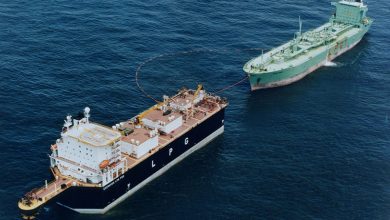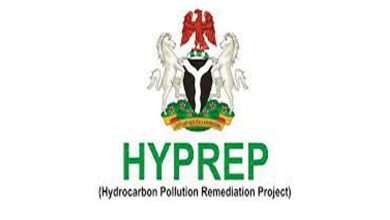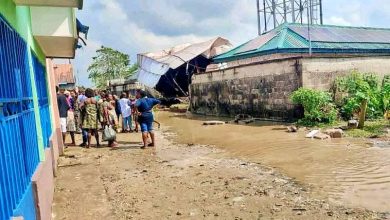A Cheque Written in Blood: the Niger Delta remembers Ken Saro-Wiwa – by Sarah Shoraka
It’s the middle of the night but I can’t sleep. It’s quiet apart from the dull hum of the aeroplane engine and the erratic, staccato snoring of the man next to me. There’s no need to put on one of the films. It’s the pictures in my mind that are keeping me awake.
I see a bus packed impossibly tight with people, its doors open practically spewing with bodies, its horns blaring, as it rides at top speed as if possessed, through throngs of people in the hot Port Harcourt night. I see the fires blazing in the streets, the dancing and the view as I turned to look back from the procession we led. I couldn’t tell where the people ended and the sky began. I try to make sense of it in my head as we fly over Africa, bound for London.
This November 10th marked the 18th anniversary of Ken Saro-Wiwa and the rest of the Ogoni 9’s execution for standing up to Shell in the Niger Delta. It could not have been more appropriate that this day was also a day of action against oil as part of the Reclaim Power month of action on energy. It was the brave actions of Ken Saro-Wiwa and the Ogoni people that finally forced Shell to halt oil extraction in Ogoniland, one region of the Niger Delta, in 1993 and that ultimately led to the executions in 1995.
The words “Reclaim power” are also apt. I have learnt that in Nigeria most of the population can barely afford to buy fuel. And yet, under their own soil, oil has been pumped every day since it was discovered by Shell in 1958 either through leaky pipelines or extracted through oil wells. This oil makes billions in profits for oil companies and elites whilst 100 million Nigerians live in destitution. In the Niger Delta, people suffer poverty, loss of livelihood, violence and pollution brought about by the extraction and transportation of this black gold under their ancestral lands. Many can view the heavily guarded oil infrastructure from their homes but the distance between it and them might as well be a million miles.
This year, as part of my work on Nigeria, oil and human rights, I have been visiting the region for the first time to connect with social movements and organisations that are carrying on Ken’s work. My visit was also timed to coincide with the anniversary of the executions. In 2004, Platform gathered a diverse coalition of organisations and individuals to keep the struggle of Ken Saro-Wiwa and the Ogoni people alive in the public imagination through a groundbreaking public art project – a living memorial to Ken Saro-Wiwa, created by British artist Sokari Douglas-Camp CBE. 2015 will be the 20th anniversary of the executions and we are hatching plans. Part of the reason for my visit was to see whether people in the region still identified with Ken’s struggle and how they saw their future. More than anything, I was curious to see what the date meant for people living in the Niger Delta.
The events started on 9 November with candle light vigils in different locations in Port Harcourt, the city where Ken worked and died. I travelled with Celestine AkpoBari and Kenn Henshaw. Both work at an NGO called Social Action, that focuses on human rights, environmental struggles and empowering communities. They are both also well-known activists. Celestine also leads the Ogoni Solidarity Forum that since its inception in 2007 has organised mobilisations on Nov 10th.
The first vigil we visited was organised by students. Many of them were not even born when Ken was executed. Our car leaves the paved road and careers this way and that trying to avoid huge craters and pools of water of indecipherable depths. Finally, we give up and leave the car. I struggle to keep up with the others who are used to navigating the terrain in almost complete darkness due to the whims of Nigeria’s electricity and roads’ systems. Suddenly, a series of shouts and bangs pierce the air and we see disembodied candles flickering and moving towards us like ghosts.
We are greeted like long-lost relatives by hordes of young people as they shout and dance around us in dizzying circles until we reach the gathering space. It’s lighter here and I can see their eager faces and the ramshackle buildings that make up the neighbourhood. Three contented pigs are snuggled asleep in a corner seemingly oblivious to the firecrackers going off all around them.
An upturned canoe forms a makeshift stage that Celestine and Kenn Henshaw climb on to amidst roars and cheers. It’s clear this isn’t just a remembrance event or a vigil but a rallying cry for exiled Ogonis living in Port Harcourt that can’t return to their homeland because of pollution, loss of livelihood, poverty and violence. There’s almost a riot when Kenn proclaims: “They killed the messenger but they can’t kill the message. We demand justice!”
Next stop 24 Aggrey Road, the site of Ken Saro-Wiwa’s old office in Port Harcourt. I realize this time it’s on a different scale when we can’t even get the car close because of crowds. We step out into the dense, hot air and into the swarm of bodies. Almost immediately, I am swallowed up by the crowd and lose everyone. Someone grabs my hand and pulls me along as I try to focus on my friends in front and not get distracted by the sights and sounds all around and the people reaching out to say hi and touch my hand. A man shouts to me: “See you can walk our streets and you won’t get kidnapped! SEE!” For some reason I feel overwhelmed by emotion and watery eyes slow me down even more.
I get pulled to the front of the crowd and in through a door, up some steps and step out blinking on to the balcony of Ken Saro-Wiwa’s old office. Only now do I see the extent of the crowds; people as far as the eye can see. The mood is euphoric, music blares from speakers and every few seconds someone sets light to the spray from an aerosol can. This is not like any candlelight vigil I have ever attended.
The music stops and there are a series of short speeches, some in the Ogoni language after protestations from the crowds. I understand enough to know that I am being introduced as an honoured guest and that people are elevated by the fact that foreigners have come to stand with them. Suddenly, before I fully understand what’s happening, I realize that I am being carried along towards the microphone and in a trance I shout: “Gbene Ogoni, Gbene Ogoni, Gbene Ogoni,” meaning great Ogoni. I can’t fully remember the words I said but I remember the feeling of total elation and the expressions on people faces below smiling and waving up at me. All of the speakers talk about the UNEP report into pollution in Ogoniland in 2011 and the fact that despite it delivering a death sentence for the people living there its recommendations have not been implemented.
Later on, we walk and dance down the streets. I am learning the Ogoni songs, only occasionally noticing that my hair is dripping wet with sweat. It almost seems to get hotter at night in Port Harcourt. We arrive at the prison where Ken Saro-Wiwa was hung. I am told that the nation was busy watching an important football match, unaware of what was happening on the other side of the high walls in front of us. Kenn Henshaw remarks: “It never fails to move me, “ his voice choking, “the fact that they failed to hang him the first time. How he suffered!” I nod turning to face the vertiginous, grey prison walls decorated atop with their treacherous barbed wire that catches the lights.
I am adopted by a series of people that take it upon themselves to look after me and make sure I don’t lose my friends or fall down a hole in the road. Soon we arrive at the cemetery where Ken was dumped in an unmarked grave under armed guard. There is a rush and crush to the gates so that everyone can leave their candles there. We eventually make it home at about 3am, leaving the crowds to dance until dawn. We have another big day tomorrow.
November 10 arrives rather too soon. It’s an early start after a late night but the excitement is more than carrying me through. The drive to Bori – the capital of Ogoniland – takes longer than usual because of the crowds. By the time we arrive most have already arrived sheltering from the sun under marquees on the square outside the Ken Saro-Wiwa Peace Centre. Today is a more formal occasion. We witness traditional dancing and meet the women who tend Ken’s graveside every day. After the military dictatorship ended, Ken’s remains were identified and he was buried at home in Ogoniland.
There is an entourage of media in Bori. Celestine, Kenn and the traditional ruler of the community do interviews as well as addressing the crowds. The week after I am astonished to see that it is the lead story on the TV news and is repeated several times that day and for the next 3 days. It also makes headlines in many of the print media. The message from all is consistent: a clean up of the pollution needs to begin immediately. There are also demands for all the political parties to field an Ogoni candidate in the next state elections and for a Ken Saro-Wiwa university. If their demands are not met, we hear that there will be a series of daring but peaceful actions to shut down oil infrastructure and cripple economic activity. People here are tired of broken promises.
What keeps replaying in my head, even as the plane touches down at Heathrow airport, are Kenn Henshaw’s words as he addressed the crowds: “There is a cheque for the Ogoni that needs to be cashed in 2015…and it is written in blood.” 2015 will be time for action, not only remembrance.





